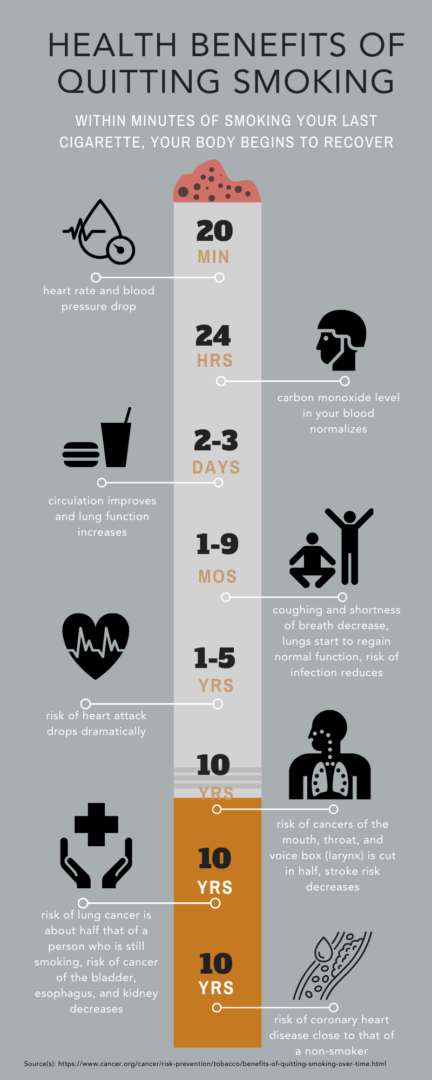
Monadnock Community Hospital is among a handful of New Hampshire hospitals offering Tobacco Counseling
Welcome to Monadnock Community Hospital’s Tobacco Counseling page. At MCH, we are deeply committed to improving the health and well-being of our community. Smoking is a critical issue that affects the health of individuals and our community as a whole. Our smoking cessation programs are designed to provide accessible, high-quality, and value-based support to those looking to quit smoking.
We understand that quitting smoking or vaping can be a challenging journey, but with the right resources and a strong support system, success is within reach. On this page, you’ll find information, resources, and guidance to help you take that first step toward a smoke-free life. We base our approach on science-based methods and are here to support you with compassion, collaboration, honesty, and respect.
Let’s begin this journey together.
Check with your insurance plan for coverage.
If you interested in our tobacco counseling please see your provider for a referral.
RESOURCE LINKS
Meet Our Team
Dawne Beamer (center)
Tobacco Treatment Specialist (TTS)
Essy Moverman (left)
Certified Tobacco Treatment Specialist (CTTS)
Gabriela Trust (right)
Tobacco Treatment Specialist (TTS)
Health Benefits of Quitting Smoking

Within minutes of smoking your last cigarette, your body begins to recover:
20 minutes after quitting
Your heart rate and blood pressure drop.
A few days after quitting
The carbon monoxide level in your blood drops to normal.
2 weeks to 3 months after quitting
Your circulation improves and your lung function increases.
1 to 12 months after quitting
coughing and shortness of breath decrease, lungs start to regain normal function, risk of infection reduces
1 to 2 years after quitting
Your risk of heart attack drops dramatically.
5 to 10 years after quitting
Your risk of cancers of the mouth, throat, and voice box (larynx) is cut in half, stroke risk decreases.
10 years after quitting
Your risk of lung cancer is about half that of a person who is still smoking, risk of cancer of the bladder, esophagus, and kidney decreases.
15 years after quitting
Your risk of coronary heart disease is close to that of a non-smoker.
Source: https://www.cancer.org/cancer/risk-prevention/tobacco/benefits-of-quitting-smoking-over-time.html

Array
(
[section_title] =>
[section_text] =>
[posts_selection] => auto_taxonomy_terms
[section_posts] => Array
(
[0] => WP_Post Object
(
[ID] => 39668
[post_author] => 9192204
[post_date] => 2025-02-25 15:13:09
[post_date_gmt] => 2025-02-25 20:13:09
[post_content] =>
[post_title] => Video: Every Breath a Victory: One Man's Fight to Reclaim His Life: Bruce's Story
[post_excerpt] =>
[post_status] => publish
[comment_status] => closed
[ping_status] => closed
[post_password] =>
[post_name] => pulmonary-rehab-transformation-bruce-journey
[to_ping] =>
[pinged] =>
[post_modified] => 2025-09-16 12:06:13
[post_modified_gmt] => 2025-09-16 16:06:13
[post_content_filtered] =>
[post_parent] => 0
[guid] => https://monadnockcommunityhospital.com/?p=39668
[menu_order] => 0
[post_type] => post
[post_mime_type] =>
[comment_count] => 0
[filter] => raw
)
[1] => WP_Post Object
(
[ID] => 38147
[post_author] => 9192204
[post_date] => 2024-06-28 11:55:02
[post_date_gmt] => 2024-06-28 15:55:02
[post_content] =>
[post_title] => Heartfelt Stories - Breathing New Life: Bruce’s Journey to Independence
[post_excerpt] =>
[post_status] => publish
[comment_status] => closed
[ping_status] => closed
[post_password] =>
[post_name] => patient-stories-barsalou-2024
[to_ping] =>
[pinged] =>
[post_modified] => 2025-09-16 12:06:15
[post_modified_gmt] => 2025-09-16 16:06:15
[post_content_filtered] =>
[post_parent] => 0
[guid] => https://monadnockcommunityhospital.com/?p=38147
[menu_order] => 0
[post_type] => post
[post_mime_type] =>
[comment_count] => 0
[filter] => raw
)
[2] => WP_Post Object
(
[ID] => 38852
[post_author] => 9192204
[post_date] => 2016-04-15 13:08:57
[post_date_gmt] => 2016-04-15 17:08:57
[post_content] =>
[post_title] => QUIT 2b FIT: Your Comprehensive Path to Becoming Smoke-Free
[post_excerpt] =>
[post_status] => publish
[comment_status] => closed
[ping_status] => closed
[post_password] =>
[post_name] => quit-2b-fit-2016
[to_ping] =>
[pinged] =>
[post_modified] => 2025-09-17 11:53:53
[post_modified_gmt] => 2025-09-17 15:53:53
[post_content_filtered] =>
[post_parent] => 0
[guid] => https://monadnockcommunityhospital.com/?p=38852
[menu_order] => 0
[post_type] => post
[post_mime_type] =>
[comment_count] => 0
[filter] => raw
)
)
[posts_limit] => 30
[post_type] => post
[taxonomy] => tag
[terms] => pulmonary fitness, smoking, quit smoking
[section_id] => post-grid-6
)


 )
[_extra_sidebar_content_0_content] => Array
(
[0] => field_5b1ac5808389e
)
[extra_sidebar_content] => Array
(
[0] => 1
)
[_extra_sidebar_content] => Array
(
[0] => field_5b1ac5628389c
)
[_yoast_indexnow_last_ping] => Array
(
[0] => 1759163342
)
[page_sections_5_section_title] => Array
(
[0] =>
)
[_page_sections_5_section_title] => Array
(
[0] => field_5ada5134d3021
)
[page_sections_5_wysiwyg] => Array
(
[0] =>
)
[_extra_sidebar_content_0_content] => Array
(
[0] => field_5b1ac5808389e
)
[extra_sidebar_content] => Array
(
[0] => 1
)
[_extra_sidebar_content] => Array
(
[0] => field_5b1ac5628389c
)
[_yoast_indexnow_last_ping] => Array
(
[0] => 1759163342
)
[page_sections_5_section_title] => Array
(
[0] =>
)
[_page_sections_5_section_title] => Array
(
[0] => field_5ada5134d3021
)
[page_sections_5_wysiwyg] => Array
(
[0] =>